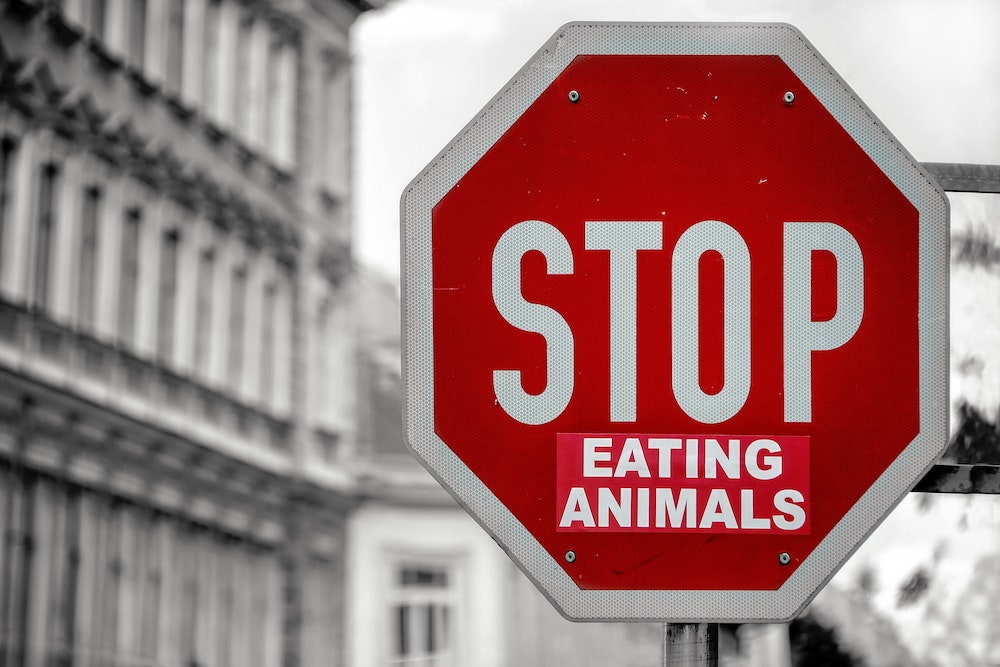If you’re new to or considering getting into a plant-based lifestyle, you may have some questions. One of the first questions newbies have is about the differences of being vegan vs. vegetarian. Some people call themselves one; some call themselves the other. And some people say they’re vegetarian when they really aren’t (we’re looking at you, pescatarians). Let’s dig into what delineates a vegan from a vegetarian.
First, the Similarities
When you stop eating meat products, you enter into a plant-based lifestyle. Both vegans and vegetarians avoid meat products. That means no animal meats, period, not just no red meat. Therefore, all vegetarians and vegans avoid chicken and seafood. If a person doesn’t eat red meat, they’re still an omnivore, albeit one who doesn’t eat beef. Some people who are primarily plant based will eat fish and seafood, and some restaurants have even been known to feature a tuna fish salad or sandwich on the vegetarian menu! However, in both instances, this is not considered to be vegetarian. Instead, people who only eat seafood and no other animal products are labeled pescatarian.
Vegan vs. vegetarian often goes beyond just what you eat. People in both camps generally choose these plant-based lifestyles for the health benefits or because they support animal welfare. It has been well documented that animals who are farmed for food are not well treated on the way to the grocery store. Therefore, vegans and vegetarians should be commended for their commitment to animals and the environment!
Now for the Differences
If both vegans and vegetarians don’t eat meat, what’s the difference between vegan vs. vegetarian? It’s pretty simple: vegans go a step further and don’t eat (or use) any animal products.
The obvious foods that include animal products are:
- Dairy: milk, cheese, ice cream, yogurt, butter
- Eggs
- Gelatin: used in marshmallows, gummy bears, and Jell-O, among other items
- Honey
- Lard
But what about those food items that aren’t as obvious? For individuals fully committed to being vegan, they look at how products are made. It’s always positive to know where your food comes from! The following are not vegan:
- White sugar, which is filtered using bone char (unless it’s organic or raw).
- Soy sauce may be made with fish oil and white sugar.
- Red dye, which is used in many products (that you eat and wear), is made from cochineal bugs.
- Sprinkles can include confectioner’s glaze (made from insects), white sugar, dyes, gelatin, and dairy.
- Some beers, wines, and spirits are distilled using animal products.
Being vegan vs. vegetarian extends beyond what you put in your mouth, though.
Vegan Beyond Food
It’s true that there are some people who consider themselves vegan and only avoid animal products in their foods. But being vegan to support animal rights and help the environment means eschewing all animal products. That can include:
- Leather
- Fur
- Wool
- Silk
- Down (in jackets, duvet, or pillows)
- Lanolin
- Shellac
- Glycerine
- Animal hair (in brushes, primarily)
- Collagen
- Elastin
- Keratin
Non-vegan items such as these can be found in common household goods, clothing and shoes, makeup, skincare, and haircare products. If you truly want to embrace a vegan lifestyle that is focused what’s best for animals and the environment, you should do an inventory of the things you put in and on your body, as well as what’s in your house.
The Lowdown on Vegan vs. Vegetarian
As you can see, there are similarities and differences when it comes to vegan vs. vegetarian. If you’re exploring embarking on a plant-based lifestyle, you can choose one or the other or a blend that works best for you. Your reason for eliminating meat and animal products may have to do with your personal health, the health of the environment, or the welfare of animals; all are valid!
When taking on a new way of eating, it can sometimes be beneficial to get a little help. The Vegan Taste has you covered with the food aspect of being vegan. Our entire menu is vegan and delicious. Use it to go 100% vegan or to supplement a vegetarian lifestyle. We welcome one and all.
See what Chef Jason is cooking this week and schedule your delivery!




